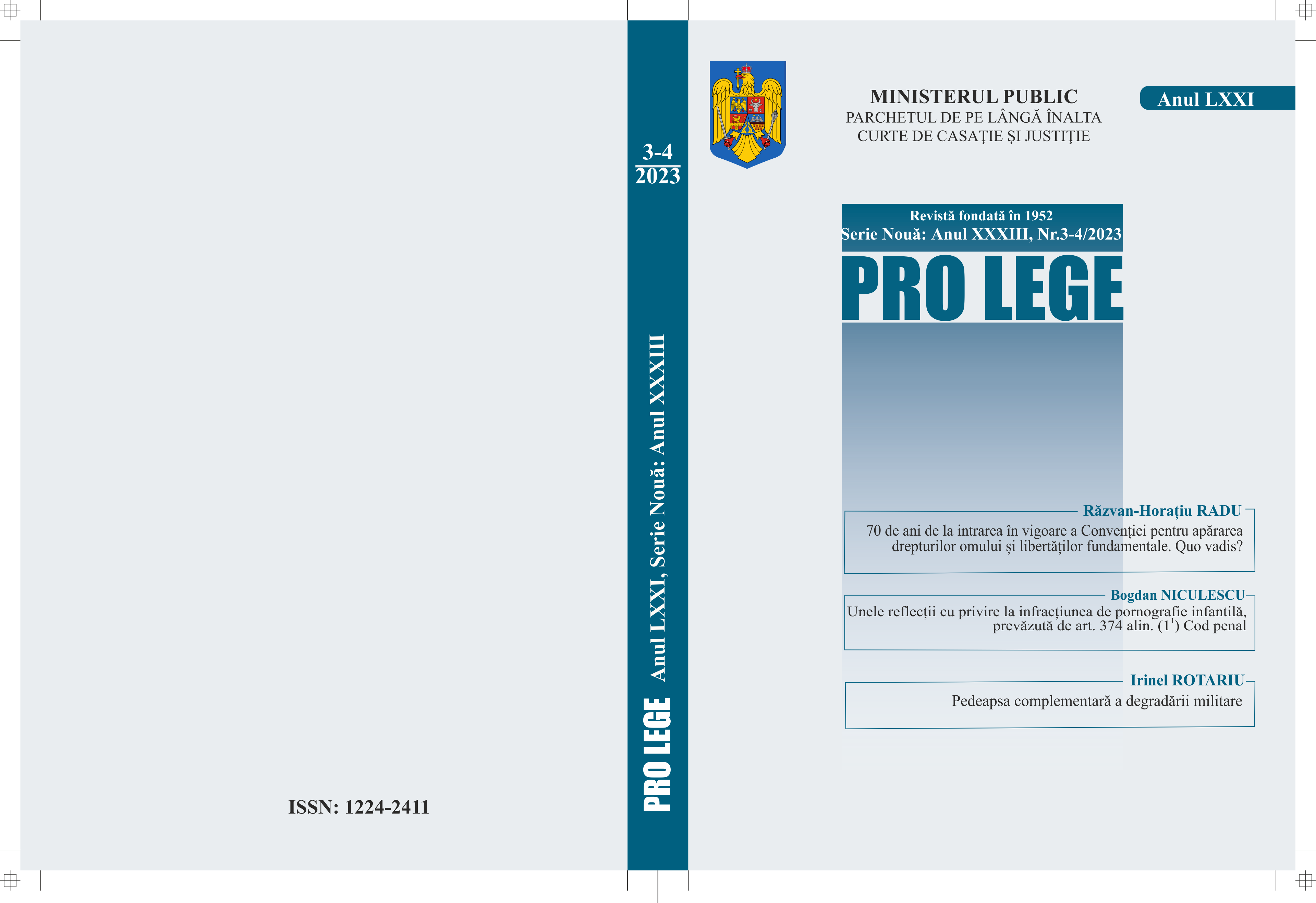Author(s): Oana Chichernea / Language(s): Romanian
Issue: 3-4/2023
Application of the provisions of art. 41 para. (3) of the Criminal Code regarding international recidivism, in the case of the existence of a final conviction ordered by a foreign court, it can only be carried out following the procedure for the recognition of the foreign conviction, exclusively incidentally, provided for by art. 147 of Law no. 302/2004, republished, with subsequent amendments and additions, and not based on the existing mentions in the European criminal record system. In accordance with the jurisprudence of the Court of Justice of the European Union derived from cases number C-390/16 and C-171/16, the existence of a recognition procedure and the attribution of effects to the foreign judgment in the procedural framework in which the national court resolves the main dispute, but compatible with the rules of the Framework Decision 2008/675/JAI, the aspect of incompatibility established by the CJEU only referring to the imposition by the national legislation of the obligation to recognize the foreign judgment in a separate prior procedure, which conditions the attribution of effects to the foreign judgment in the new criminal process. The provisions of art. 147 of the Law no. 302/2004, republished, applied in relation to the regulation of international recidivism, will be examined in accordance with the Framework Decision 2008/675/JAI, which defines the notion of "conviction" as any final decision issued by a criminal court that establishes the guilt of a criminal act and establishes the obligation, for each member state, to take into account, in a new criminal trial, a conviction handed down in another member state and to give it equivalent effects to those attributed to previous convictions at national level, without, however, influencing, revoking or revising previous convictions or any decisions relating to their execution, taken by the Member State where the new trial is taking place. In this context, in a procedure pending before a court in Romania, a foreign judgment may be recognized by which a custodial sentence was imposed, being attributed exactly the same effects as it would have had if it had been pronounced by a Romanian court, however, the court being required to comply with the conditions resulting from the Framework Decision 2008/675/JAI, respectively it will not be able to include in a merger the penalty imposed by the foreign judgment with the effect of its execution and it will not be able to change the manner of its execution, regardless of the sanctioning mechanism provided by the own legislation. Consequently, if the penalty applied by the foreign judgment has not already been executed, the Romanian court will be able to proceed exclusively to retain the incidence of the provisions of the Criminal Code regarding post-conviction international recidivism, without being able to proceed to the application of the sanctioning regime that involves merging with the penalty applied by the foreign judgment. In the case of retention of post-execution international recidivist status, the court will be able to apply the sanctioning system provided by art. 43 para. (5) of the Romanian Criminal Code, since, on the one hand, the previous sentence has been executed or considered as executed, and, on the other hand, the decision that will be pronounced will not have as a consequence, directly or indirectly, the execution of the sanction applied by the foreign judgment.
More...

